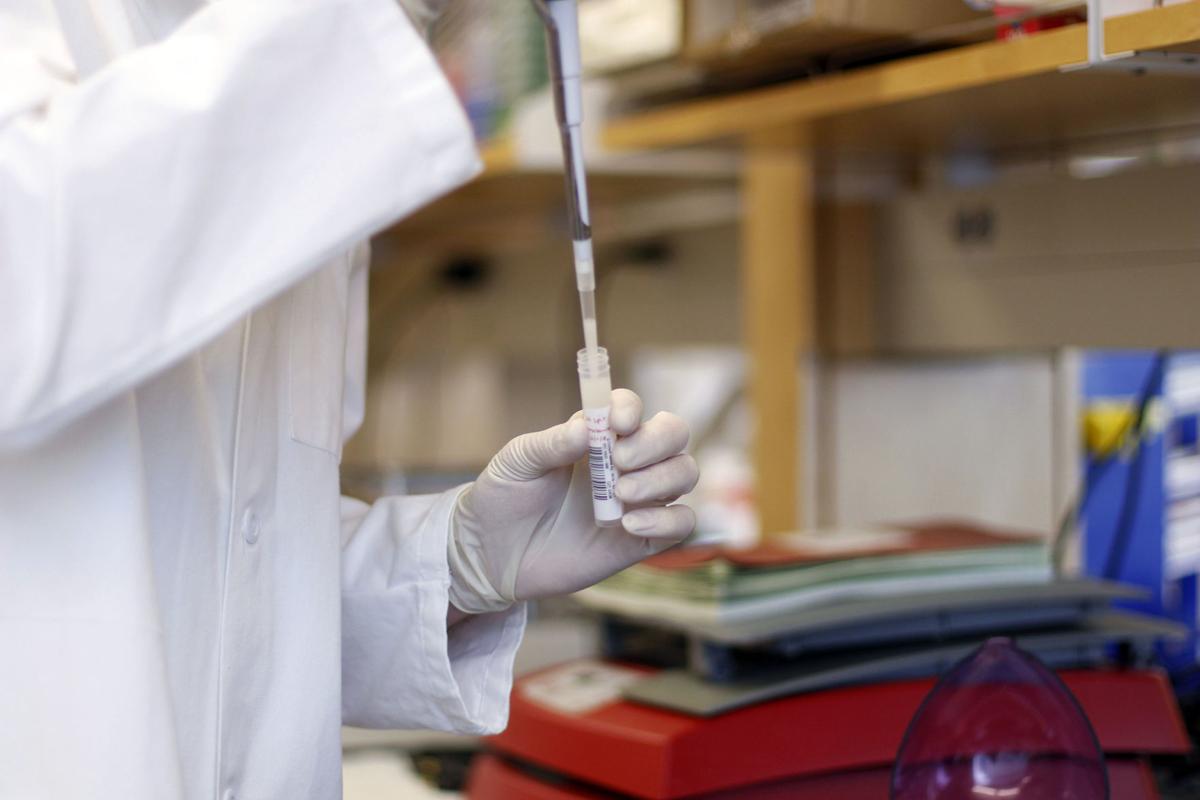The New Venture Development Program at the University of Arizona’s McGuire Center for Entrepreneurship is mainly an academic exercise designed to give students the experience of moving an idea to a launch-ready venture.
But real products and companies have emerged from the program, and they increasingly involve UA technologies as McGuire reaches out across campus.
The New Venture Development Competition, held last week at the Leo Rich Theater downtown, allowed students to pitch their brightest ideas:
The grand-prize winner and recipient of a $10,000 prize, Genesence , developed a DNA test service to screen people for drug suitability.
The second-place awardee ($5,000 prize), Gradeology, is a web-based tool to help students track their assignments and analyze their performance. The Gradeology team also won the Connect Coworking award, worth $11,600 in office services.
The third-prize award ($2,500) went to Shanker and Sons, which is developing nontraditional golf equipment.
Among other sponsored awards, a venture called Ecocrete won the Microsoft Social Innovation Award and its $5,000 prize. The company, which has developed a new formula for an eco-friendly concrete mix using mine tailings, also won the Startup Stay in Tucson Award and with it support worth $2,000 from Startup Tucson, a nonprofit group that fosters startups through various programs.
Another DNA test venture, Genexam, won the Arizona Center for Innovation award and $2,000 worth of support services from the business incubator at the UA Tech Park to advance its concept of providing individuals with comprehensive genomic profiles.
The event’s People’s Choice Award and $2,000 went to Algoe Chemicals, which has developed a powerful reducing agent for chemical reactions.
Launched in the mid-1980s, McGuire’s New Venture Development Program is a competitive-entry program open to undergraduate and graduate students from across the UA campus.
The program’s current class is made up of 86 students from nine UA colleges, including the Eller College of Management, agriculture and life science, engineering, fine arts, humanities, pharmacy, science, social and behavioral studies and letters, arts and sciences.
The 22 student teams that pitched concepts at last week’s competition included 15 engineering students, said McGuire Director Remy Arteaga.
“This is the biggest it’s ever been,” said Arteaga, adding that the program expects 35 teams and some 140 students next year.
While some say an entrepreneurial spirit is something you’re born with, Arteaga believes exercises like the New Venture Development Program and competition can instill such values in students.
“We believe that you can develop those attributes if you put people in a near real-world environment with high stakes in the process of launching a new venture,” Arteaga, who took McGuire’s reins in December 2016 after heading a Latino business initiative at Stanford University.
Arteaga said the center now has a formal partnership with the UA College of Engineering to recruit students and it’s reaching out to other colleges including Optical Sciences, to create a pipeline of students in tech fields to team up with McGuire entrepreneurship students and in some cases earn second majors.
“We actively want to recruit engineers, scientists and mathematicians, because they’re the ones who know how to create, and then we combine them with our students, and they know how to market and do financials and that kind of stuff – it’s the combination of those students that really develop the best stuff,” he said.
Though creating new businesses isn’t the main goal, the New Venture Development Program has seen some ideas reach the marketplace.
McGuire alumnus Matt Van Horn co-founded a ridesharing company that later became Lyft.
Another McGuire grad, Sean Conway, created Notehall, an online marketplace for class notes that was featured on “Shark Tank” and acquired by the digital textbook company Chegg for $9.5 million in 2011.
Grace Gainey, a McGuire student and CEO of Genesence, said the company has initially developed a service to analyze DNA samples to determine how a person metabolizes drugs by mapping genes that affect production of certain liver enzymes.
Patients can submit a saliva sample by mail, have their DNA analyzed and get a report on the results that can be shared with doctors, said Juhyung Sun, Genesence’s chief financial officer and a student in the UA’s master of business administration and master’s in public health programs with a background in cell biology, medicine, and pharmaceutical marketing.
“We’re really trying to make the process more accessible to people,” Sun said.
Gainey said the company could have patentable intellectual property in the form of its database of genetic liver-enzyme markers.
Meanwhile, for graduating students like Gainey, career calls.
She’s accepted a job offer with insurance giant Geico in Tucson, but she plans to work on Genesence half-time along with her co-founders, which also include chief operating officer Joshua Uhlorn, a UA doctoral student in physiological science, and Mok Oh, a third-year doctoral student in pharma-economics.
Genesence has a long way to go, since the company will have to find funding for trials and win approval from the U.S. Food and Drug Administration. The company already is partnering with a mail-in sample collection company.
“We’ve done a lot of good work planning and verifying this,” Sun said.
Martin Ruiz, a founder of Ecocrete, said the company’s mine-tailing concrete formula was developed by co-founder Miguel Pugmire, a mining engineering student.
“We’re looking to develop a licensable technology,” Ruiz said, noting that mine tailings have a fine consistency and other properties that make them work in a formula without the Portland cement that is traditionally used.
Ruiz said the next steps are to establish a formal limited-liability company and patent the company’s formula.
Ruiz said he and co-founder Sydney Wilson will be off to Phoenix after their imminent graduation, after he accepted a job offer to become a representative for financial giant Vanguard and Wilson has accepted an offer to join a Phoenix environmental consulting company.
Pugmire and another co-founder, Sean McBride, will continue development here as they complete their studies, Ruiz said.





